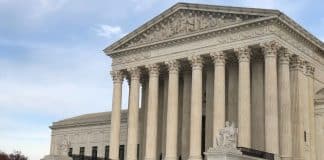The Arizona Supreme Court ruled Monday that Republican lawmakers have standing to challenge Proposition 211, a voter-approved campaign finance law. The 5–2 decision allows legal challenges over potential constitutional violations, particularly concerning the separation of powers between the legislative and executive branches.
Proposition 211, passed in November 2022 by a wide 72% majority, requires public disclosure of donors who contribute more than $50,000 to statewide political campaigns or over $25,000 to local ones. The law is aimed at increasing transparency in political financing, especially in high-stakes elections.
Shortly after the proposition was passed, conservative groups including the Center for Arizona Policy and the Arizona Free Enterprise Club, along with two anonymous individuals, filed suit claiming the measure was unconstitutional. That initial case was dismissed in 2023 by a Maricopa County Superior Court. However, Republican legislative leaders Senate President Warren Petersen and House Speaker Ben Toma filed a separate lawsuit that the court allowed to move forward.
The lawmakers argue that Prop. 211 improperly transfers legislative powers to the Arizona Citizens Clean Elections Commission, an executive agency. Specifically, they claim the law violates the Separation of Powers clause of the Arizona Constitution by giving the commission the authority to implement and enforce a law that should fall under the legislative branch’s jurisdiction.
The defendants, including Secretary of State Adrian Fontes, Attorney General Kris Mayes, and the commission, maintain that Prop. 211 is consistent with other laws implemented by executive agencies and that voter-approved initiatives cannot be overridden by the Legislature. They argue that the commission is merely executing the law, not creating it.
The state Supreme Court did not rule on the constitutionality of Proposition 211 itself. Instead, the justices affirmed that the lawsuit could proceed and that questions about severability—whether parts of the law could remain if others are struck down—should be addressed only after the constitutionality is determined.
The ruling marks a significant development in the ongoing legal battle over who controls the mechanics of political transparency in Arizona. It opens the door for the Republican-led Legislature to challenge a measure overwhelmingly approved by voters.





